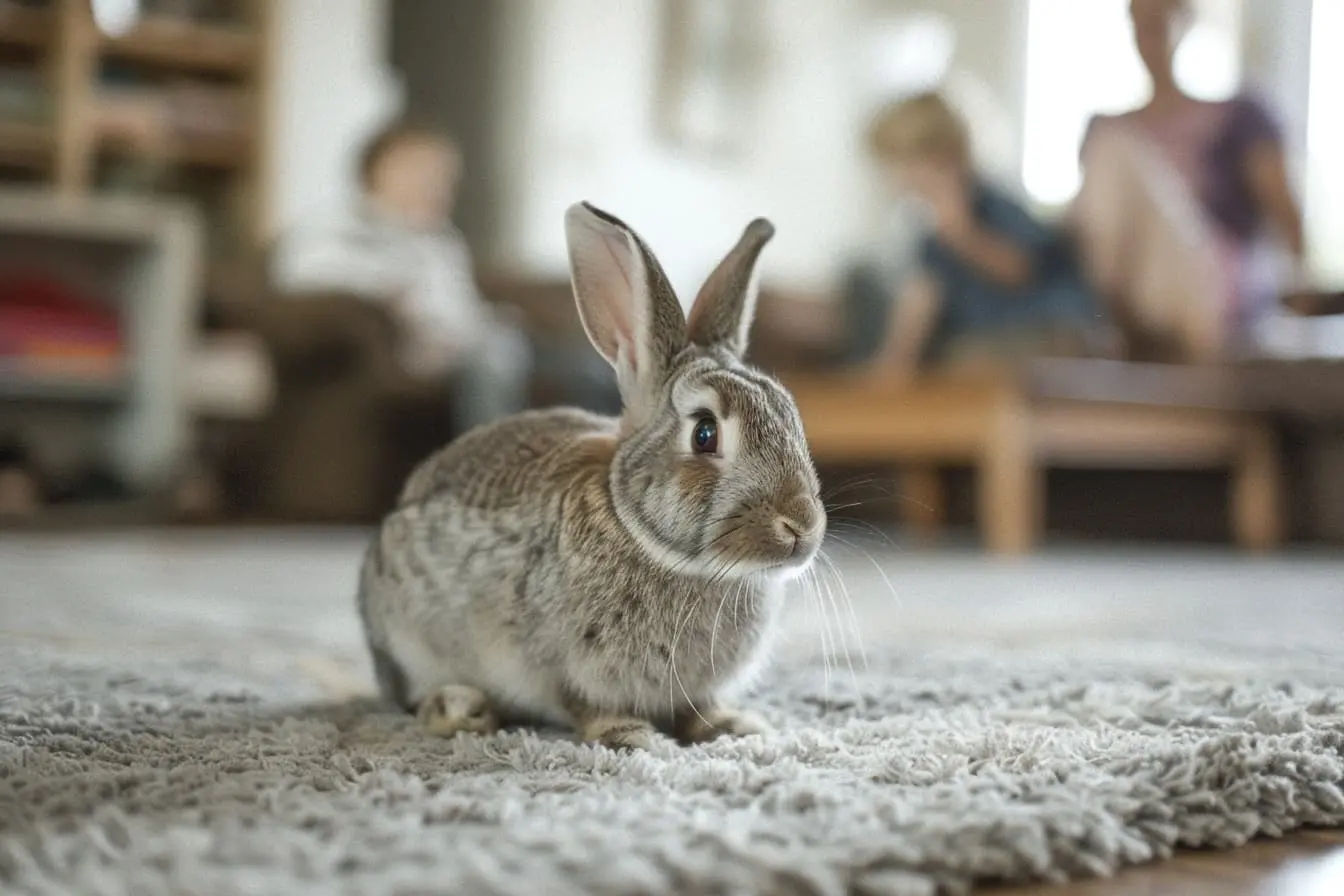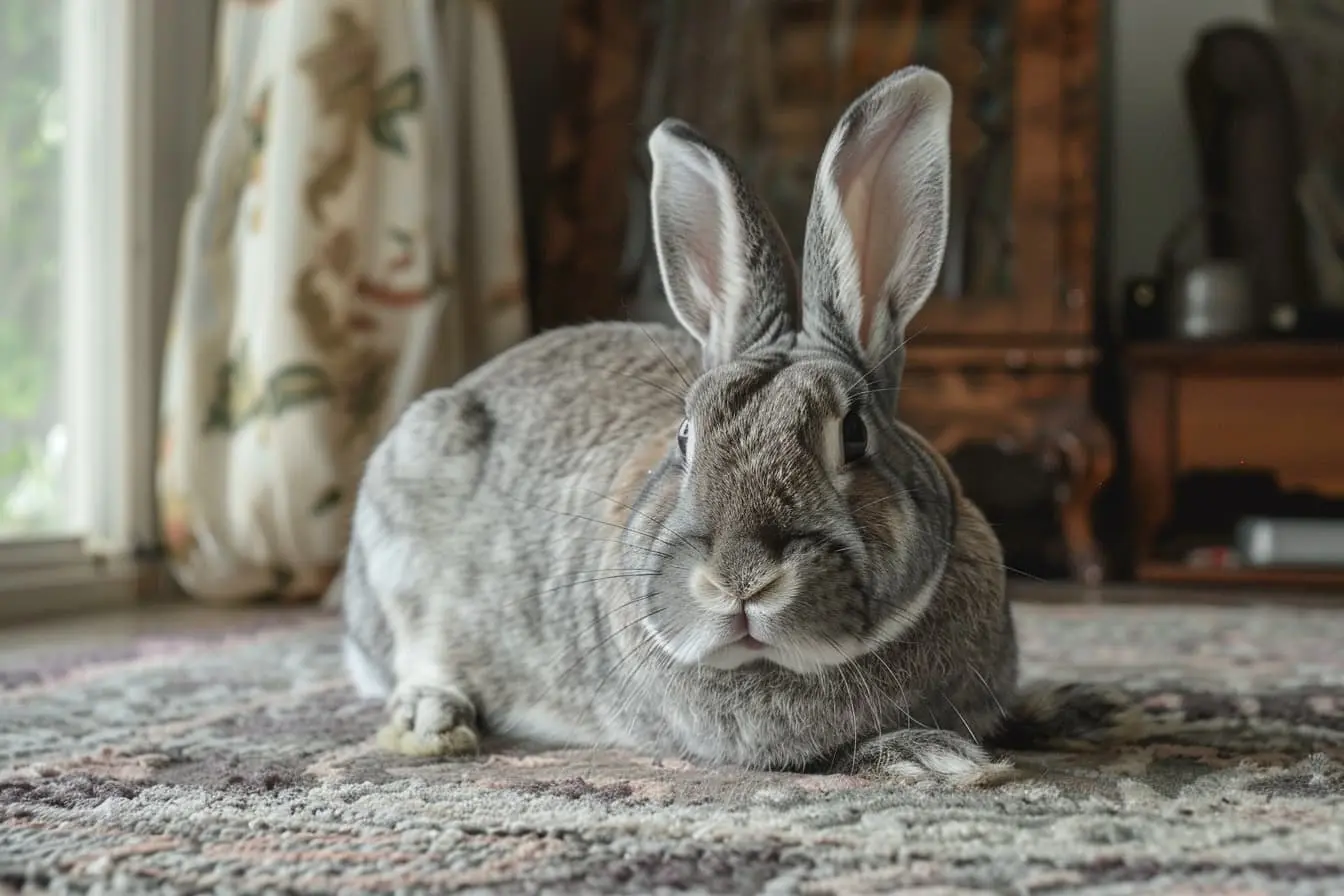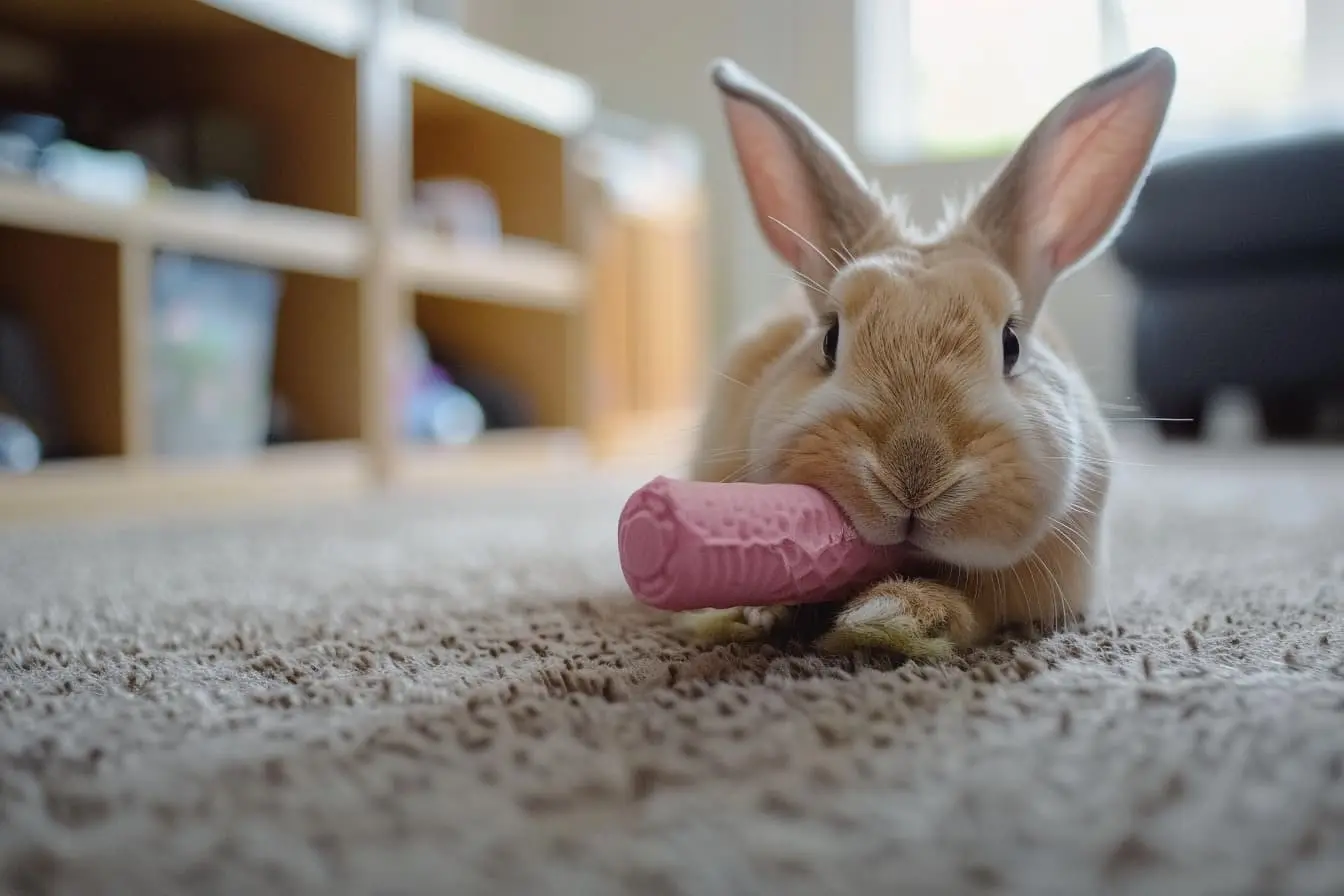
The Hidden Danger: Understanding Fly Strike in Pet Rabbits
Fly strike, also known as myiasis, is a severe, often fatal condition that can affect rabbits, especially during the warmer months. It occurs when flies lay eggs on the rabbit, which then hatch into maggots. These maggots feed on the rabbit's flesh, leading to rapid deterioration in health and, if not treated promptly, death. This post aims to raise awareness among rabbit owners about the risks of fly strike, its prevention, and the importance of early detection.
How Does Fly Strike Happen?
Fly strike typically occurs in rabbits that are unable to keep themselves clean due to obesity, old age, dental disease, diarrhoea, or urinary tract problems. Flies are attracted to damp fur, urine, faeces, and the odour of an infection. They lay eggs in these areas, and within hours, these eggs can hatch into maggots that start to eat away at the rabbit's flesh.
Recognising the Signs of Fly Strike
Early detection of fly strike is crucial. Signs include:
- Restlessness: Infested rabbits may appear more agitated than usual.
- Loss of Appetite: A sudden lack of interest in food or water.
- Unpleasant Odour: A strong, unpleasant smell caused by infection.
- Visible Maggots: In severe cases, maggots may be visible in the fur or around the rear.
Prevention: The Key to Protecting Your Rabbit
Prevention is always better than cure, especially with a condition as aggressive as fly strike.
Maintain Cleanliness
- Keep your rabbit's living area clean. Remove soiled bedding daily and disinfect the hutch regularly.
- Ensure your rabbit's rear end is clean and dry. Check daily, more frequently in warm weather or if your rabbit is prone to messiness due to health issues.
Monitor Health and Diet
- Keep an eye on your rabbit's weight to prevent obesity, which can hinder their ability to groom themselves.
- Provide a balanced diet to prevent diarrhoea. Hay should be the main component to ensure healthy digestion and prevent soft stools.
Regular Vet Checks
- Annual check-ups can help identify and manage health issues that may increase the risk of fly strike, such as dental problems or urinary tract infections.
Use Fly Repellents
- Safe, rabbit-specific insecticide sprays can repel flies. Use according to the instructions, and only after consulting with your vet.
Fly Screens
- Consider installing fly screens on hutches or runs to physically prevent flies from reaching your rabbit.
What to Do If You Suspect Fly Strike
If you suspect your rabbit has fly strike, it is a medical emergency. Immediate veterinary attention is required to remove the maggots and treat any underlying infection. Time is of the essence, as the condition can deteriorate rapidly.
Conclusion
Fly strike is a distressing condition that can lead to severe consequences for affected rabbits. However, with diligent care, regular health checks, and good hygiene practices, the risk can be significantly reduced. Awareness and early intervention are key. By taking proactive steps to protect your rabbit from fly strike, you ensure they lead a happy, healthy life free from this preventable danger.
Vets near you
Speciality vets
- Aquatics vet specialists
- Birds vet specialists
- Camelids vet specialists
- Cats vet specialists
- Cattle vet specialists
- Deer vet specialists
- Dogs vet specialists
- Equines vet specialists
- Exotic vet specialists
- Goats vet specialists
- Pigs vet specialists
- Poultry vet specialists
- Sheep vet specialists
- Small Mammals vet specialists
- Wild vet specialists
Vet facilities
- Accessible by public transport
- Blood testing
- Car park nearby
- Client car park
- Dentistry
- Diagnostic imaging
- Disabled public access
- Flea and worm treatments
- Microchipping
- Mobile services
- Neutering
- Open at weekends
- Out-of-hours service
- Referral interests
- Referrals only
- Street parking outside
- Toilets available
- Vaccination clinic



